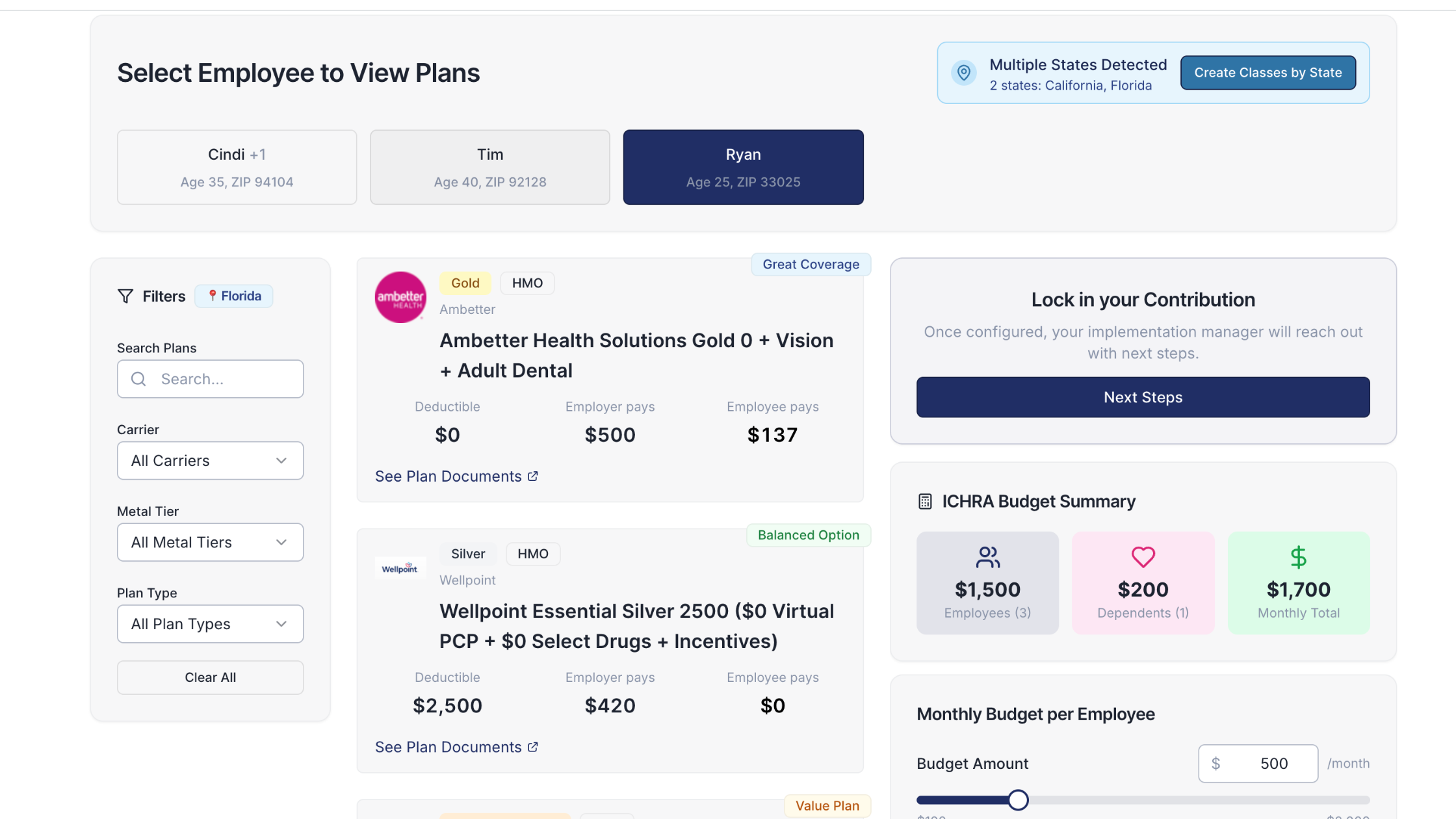A Comprehensive Guide to Reimbursable Out-of-Pocket Medical Costs

Understanding Your Out-of-Pocket Expenses
When it comes to your health expenses, it's essential to have a complete understanding of what falls under the umbrella of out-of-pocket costs. These expenses include deductibles, copayments, and coinsurance – all those lovely little amounts that slip through the cracks and leave you wondering where your hard-earned money went.
Let's dive deeper into each of these out-of-pocket expenses to gain a better grasp of how they can affect your financial well-being.
Deductibles
A deductible is the amount you must pay out of pocket for covered medical services before your insurance starts to kick in. It's like a threshold you need to cross before your insurance company begins sharing the financial burden. Deductibles can vary depending on your insurance plan, and they typically reset annually.
For example, let's say your health insurance plan has a $1,000 deductible. If you have a medical procedure that costs $2,000, you will be responsible for paying the first $1,000, and your insurance will cover the remaining $1,000, subject to any copayments or coinsurance.
Copayments
A copayment, or copay, is a fixed amount you pay for a covered service, such as a doctor's visit or prescription medication. Unlike deductibles, copayments are usually due at the time of service. They can vary depending on the type of service or medication and are often listed on your insurance card.
For instance, your insurance plan may require a $20 copay for a primary care visit and a $50 copay for a specialist visit. These fixed copay amounts can provide a sense of predictability when seeking medical care.
Coinsurance
Coinsurance is the percentage of costs you share with your insurance company after you've met your deductible. It's a way of splitting the bill for covered services. For example, if your coinsurance is 20%, you would pay 20% of the total cost, and your insurance would cover the remaining 80%.
Let's say you have a medical procedure that costs $1,000, and you've already met your deductible. With a 20% coinsurance, you would pay $200, and your insurance would cover the remaining $800.
How to Calculate Your Out-of-Pocket Costs
Calculating your out-of-pocket costs may seem like a daunting task, but fear not! It's not as complicated as it seems. Start by reviewing your insurance plan documents to get a clear picture of your deductibles, copayments, and coinsurance percentages.
Next, gather all your medical bills and statements from healthcare providers. These documents will outline the services you received, the costs associated with each service, and any payments made by your insurance company.
With your insurance plan details and medical bills in hand, you can start crunching the numbers. Take a deep breath and dive into the abyss of medical bills, armed with a handy calculator and a patient heart. Trust us, you'll emerge victorious!
Strategies for Reducing Out-of-Pocket Expenses
Reducing out-of-pocket expenses might feel like trying to catch a unicorn, but believe us, it's not impossible! Explore cost-saving strategies such as utilizing generic medications, searching for in-network providers, and considering alternative treatment options.
Generic medications are often more affordable than their brand-name counterparts and can help you save significantly on prescription costs. Additionally, using in-network providers ensures that you receive services from healthcare professionals who have negotiated rates with your insurance company, resulting in lower out-of-pocket expenses.
When it comes to treatment options, it's worth discussing alternatives with your healthcare provider. Sometimes, there are equally effective options available that may have a lower cost or be covered more comprehensively by your insurance plan.
By implementing these little tricks and exploring other cost-saving measures, you may be pleasantly surprised by the impact they can have on your overall healthcare expenses. Remember, every penny saved counts!
How Employers Can Help Reduce Employees' Out-of-Pocket Medical Costs
Employers can help employees reduce their out-of-pocket medical costs by offering an Individual Coverage Health Reimbursement Arrangement (ICHRA). An ICHRA is a versatile tool that can be used to pay for a variety of out-of-pocket medical expenses. With an ICHRA, employers contribute funds to a tax-advantaged account on behalf of their employees, who can then use these funds to reimburse themselves for eligible healthcare costs. These expenses can include deductibles, copayments, coinsurance, prescription medications, and even certain over-the-counter healthcare items. By utilizing an ICHRA, employees have greater control over their healthcare spending and can effectively cover a wide range of medical costs, making it a valuable option for managing healthcare expenses and promoting financial wellness.
How a Comprehensive Employee Benefits Package Attracts and Retains Top Talent
Offering a comprehensive employee benefits package plays a crucial role in attracting and retaining top talent. Here's how:
- Influences Job Acceptance Decisions: A significant number of employees consider the benefits package when deciding whether to accept a job offer. Competitive benefits can be a determining factor in choosing one employer over another.
- Enhances Employer Brand: By providing attractive benefits, companies can position themselves as a desirable place to work. This not only draws potential employees but also boosts the company’s reputation within the industry.
- Increases Employee Satisfaction and Loyalty: Employees who feel valued and supported through a strong benefits package are more likely to stay with the company long-term. This reduces turnover and fosters a loyal workforce.
- Improves Work-Life Balance: Benefits that support work-life balance, such as flexible working hours or remote work options, are increasingly important to today's workforce. Offering these can make your company stand out.
- Attracts Diverse Talent: A varied benefits package appeals to a diverse pool of candidates, ensuring you attract talent from different backgrounds, which can enrich your company culture.
By understanding the value that prospective and current employees place on benefits, businesses can strategically use their benefits package to attract and retain top talent.
What Are the Different Types of HRAs Available for Employers?
Employers looking to offer Health Reimbursement Arrangements (HRAs) have several options, each catering to different business needs and employee situations. Here’s a breakdown of the main types:
1. Qualified Small Employer HRA (QSEHRA)
QSEHRA is designed specifically for small businesses with fewer than 50 full-time equivalent employees. This type of HRA allows employers to reimburse employees for their medical expenses and individual health insurance premiums. It's a flexible choice for smaller organizations not requiring a traditional group health plan.
2. Individual Coverage HRA (ICHRA)
Suitable for businesses of all sizes, the ICHRA offers flexibility by allowing employers to provide a stand-alone health benefit. It can serve as an alternative for employees who might not qualify for the existing group health insurance coverage, thereby offering personalized solutions tailored to the employee’s health plan needs.
3. Group Coverage HRA (GCHRA)
Also known as an integrated HRA, the GCHRA is designed to work alongside a traditional group health insurance policy. Its primary function is to help cover out-of-pocket expenses such as deductibles and co-pays that are not fully paid by the group health plan, providing a more comprehensive employee benefits package.
Key Points
- For Small Businesses: Consider QSEHRA for targeted support.
- Flexible Options for All Sizes: ICHRA allows tailored benefit solutions.
- Augment Existing Plans: Use GCHRA to enhance group health coverage.
Each type of HRA offers unique advantages, enabling employers to construct a benefits package that aligns with their business objectives and supports their workforce effectively.
When considering employee medical reimbursements, understanding the distinctions between stipends and Health Reimbursement Arrangements (HRAs) is crucial. Here's how they differ:
1. Tax Implications
- Stipends: These are considered taxable income. Employees must report the amount received during tax season as part of their earnings, similar to their salary.
- HRAs: These offer tax advantages. Contributions made by employers to an HRA are tax-free for both the employer and employee, thus providing a clear financial benefit.
2. Compliance with Regulations
- Stipends: They do not satisfy the Affordable Care Act's (ACA) employer mandate requirements. Companies with 50 or more full-time employees can't rely on stipends to meet ACA standards.
- HRAs: Certain types of HRAs, like the Individual Coverage HRA (ICHRA), are designed to comply with ACA mandates, allowing businesses to offer a compliant alternative to traditional group health insurance.
3. Usage Verification
- Stipends: Employers typically do not require proof that the stipend is spent on medical expenses. This offers flexibility but lacks oversight on spending.
- HRAs: Often require receipts or documentation to ensure the funds are used specifically for qualifying medical expenses, providing a layer of accountability.
4. Administrative Complexity
- Stipends: Easier to administer since they are straightforward payments added to payroll. There's no need for ongoing claims management or approval processes.
- HRAs: Although they can be more administratively intensive due to required documentation and claim processing, they offer more structured control over how funds are used.
Understanding these nuances can help employers make informed decisions about how to best support their employees' health care expenses while aligning with company goals and regulatory requirements.
Interested in learning more? Check out our comprehensive guide on ICHRAs.
You got questions, we got answers!
We're here to help you make informed decisions on health insurance for you and your family. Check out our FAQs or contact us if you have any additional questions.
Explore more related content
What is Venteur
Explore the best human-first Health Insurance platform
Simple, personalized health benefits
Sign up in minutes, define your contribution, and let your employees choose the health plan that works right for them
Integrations to make everything run smoothly
We'll connect with your payroll and finance systems to make deductions and premium payments seamless
Easy onboarding and off-boarding
In just a few clicks, add your roster and make updates on the fly. We'll handle it from there.
Venteur Certified Brokers to help your employees pick the right plan
Our trusted brokers ensure the best outcomes for employees and employers by unlocking health savings and providing unrivaled plan options.
AI-powered plan recommendations to give you confidence while you shop
Backed by 30 years of healthcare data, Venteur’s AI helps employees compare and choose the best plan for their unique situation.
Compliance and reporting because no-duh!
Venteur manages plan administration, reporting, and compliance so you can focus on growing your business.


